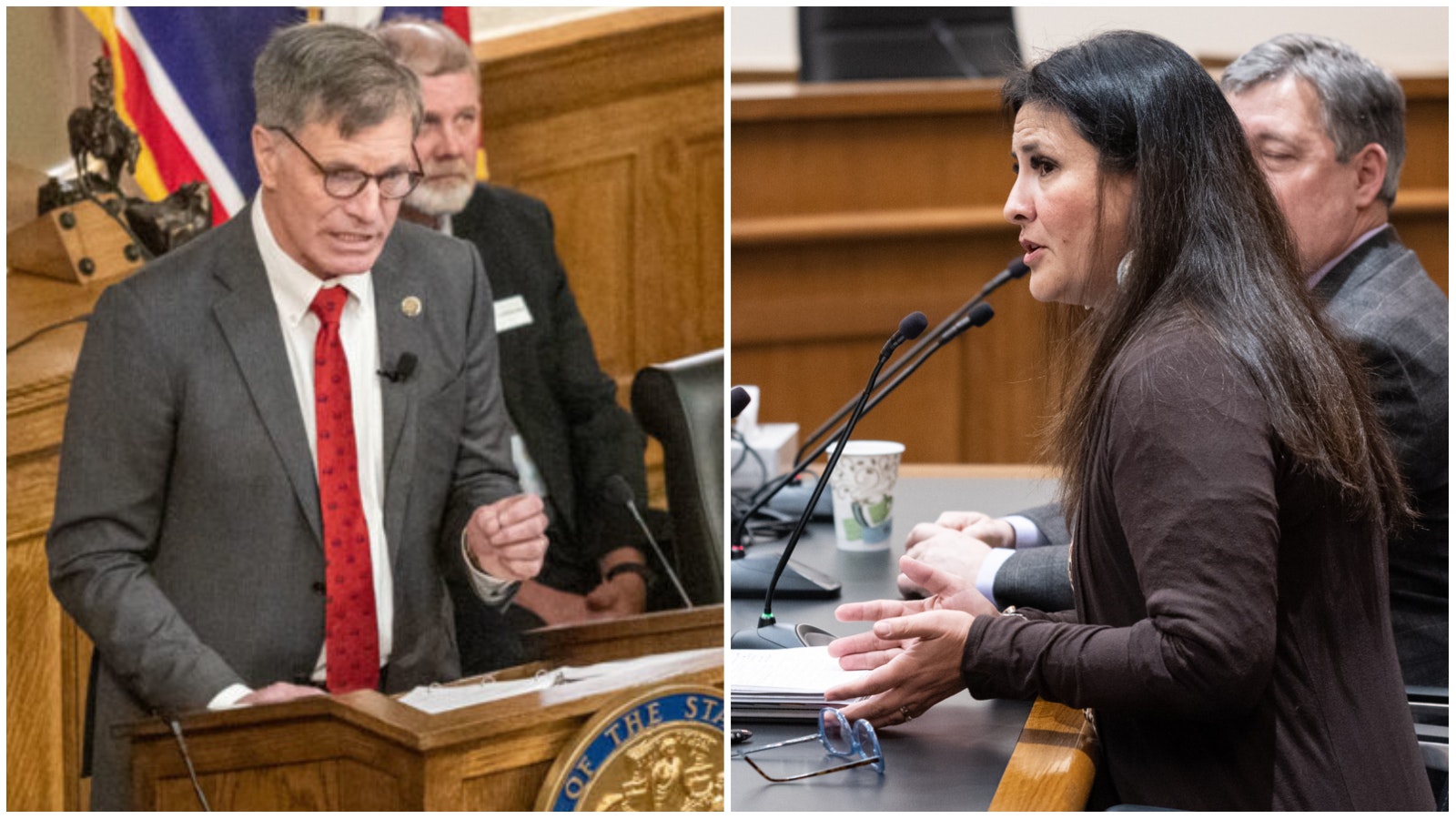A bill letting Wyoming’s governor negotiate terms of special hunting rights held by some American Indian tribal members has narrowly survived its first debate in the state Senate, despite opposition by multiple tribes.
House Bill 83 would let Gov. Mark Gordon establish off-reservation hunting agreements with Indian tribes, especially those whose treaties guarantee their members the right to hunt throughout the unoccupied lands of the nation.
Though the Eastern Shoshone Tribe of Wyoming originally supported the bill, the tribe earlier this month changed its stance and now opposes HB 83.
Gordon’s office remains in favor of the bill, according to legislative testimony this week.
“We still believe it’s a valuable tool to add to the state’s bag,” Kit Wendtland, Gordon’s tribal policy advisor, told lawmakers during a committee hearing on the bill Tuesday.
The state Senate on Thursday voted in favor of the bill 18-12. To become law, it must survive two more readings in the Senate and a nod from the state House of Representatives approving the Senate’s changes to it.
Co-Sponsor Now Opposes
Sen. Affie Ellis, R-Cheyenne, voted against the bill despite being one of its co-sponsors. She said the concerns of tribal members have turned her against it.
“In looking at this and having other tribes’ feedback, I think there was a sentiment that Wyoming was entering into a negotiation with essentially an advantage or a leg up,” said Ellis.
She referenced sideboards in the bill mandating that the tribe’s game and fish code should align with Wyoming’s.
“(Tribal members) said, ‘Why would our code have to align with yours? What about your code aligning with ours?’” said Ellis.
Hunt areas and seasons also would be set by the state Game and Fish Commission under the bill’s agreement parameters.
“That’s what really led to the downfall with discussions to this bill,” Ellis said.
She tried for a second time proposing an amendment that would repeal those sideboards and stipulate instead that the governor’s agreements with tribes should be ratified by the Legislature, but the Senate rejected that amendment.
Dems At Odds
The state Senate’s only Democrats disagreed on HB 83, with Sen. Mike Gierau, D-Jackson, voting in favor of the bill and Minority Floor Leader Sen. Chris Rothfuss, D-Laramie, against it.
Gierau said that the bill is a good-faith effort by the state to lay groundwork for future hunting agreements with tribes and doesn’t force them into anything.
“If our friends in any tribe want to come to the table, all they have to do is walk through the door,” said Gierau. “If they don’t want to do that, they can just stay away.”
Geirau said with his aye vote, he intends no malice: “Only an attempt to reach out to our tribal friends and say, ‘let’s talk.’”
Rothfuss, rather, opposed the bill “with regret.”
He said HB83 would taint the spirit of the agreement before it was even established.
“We’re used to 50% plus one being correct – it’s the nature of how we do things in this chamber,” said Rothfuss. “But we don’t have the authority to tell another sovereign nation how they are required to interpret our message.”
Rothfuss said the Legislature should start over with a new bill that echoes the Eastern Shoshone Tribe’s concerns.
The Shoshone Bannock Tribes also oppose HB 83, saying it is superfluous and an insult to tribal sovereignty.
Better Than Court
Multiple delegates defended HB 83, including Majority Floor Leader Sen. Larry Hicks, R-Baggs, who said the bill is the first step in a “long, long journey” toward agreement with tribes over treaty hunt rights.
“We need to take this step, Mr. Chairman,” said Hicks. “Hopefully at some time in my lifetime (we’ll) resolve this issue.”
Proponents of HB 83 have routinely voiced concerns that if it is not enacted, it could take multiple, criminal poaching cases to determine the exact nature of tribal members’ off-reservation hunting rights.
Because Of Herrera
The U.S. Supreme Court in 2019 ruled in Herrera vs. Wyoming that the Crow Tribe’s treaty-guaranteed right to hunt on unoccupied lands throughout the nation was not extinguished when Wyoming became a state in 1890.
This gives Crow tribal members – and Shoshone tribal members who have the same treaty language – the right to hunt beyond the reservation in a special capacity as tribal members.
Tribal members already can hunt beyond their reservations on state hunting lands with state hunting licenses, just as anyone else can, but the terms of Herrera suggest an additional, privileged right to hunt as tribal members.
Two tenets of the case, however, are still being litigated. Those are which lands are considered “unoccupied” and to what extent Wyoming has the ability to regulate that hunting to conserve game.
In an unrelated case, the champion of the Herrera case, Clayvin Herrera, has been convicted of child sex abuse for possession of child pornography in Montana. Though Herrera was slated to be sentenced Friday, his sentencing hearing is now being rescheduled for a later date.
Wendtland told lawmakers in past talks that Herrera’s sentencing could impact how the state proceeds, but he did not specify how.





